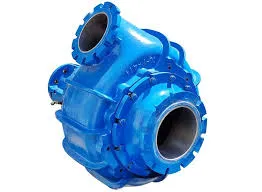Basque
- Afrikaans
- Albanian
- Amharic
- Arabic
- Armenian
- Azerbaijani
- Basque
- Belarusian
- Bengali
- Bosnian
- Bulgarian
- Catalan
- Cebuano
- Corsican
- Croatian
- Czech
- Danish
- Dutch
- English
- Esperanto
- Estonian
- Finnish
- French
- Frisian
- Galician
- Georgian
- German
- Greek
- Gujarati
- Haitian Creole
- hausa
- hawaiian
- Hebrew
- Hindi
- Miao
- Hungarian
- Icelandic
- igbo
- Indonesian
- irish
- Italian
- Japanese
- Javanese
- Kannada
- kazakh
- Khmer
- Rwandese
- Korean
- Kurdish
- Kyrgyz
- Lao
- Latin
- Latvian
- Lithuanian
- Luxembourgish
- Macedonian
- Malgashi
- Malay
- Malayalam
- Maltese
- Maori
- Marathi
- Mongolian
- Myanmar
- Nepali
- Norwegian
- Norwegian
- Occitan
- Pashto
- Persian
- Polish
- Portuguese
- Punjabi
- Romanian
- Russian
- Samoan
- Scottish Gaelic
- Serbian
- Sesotho
- Shona
- Sindhi
- Sinhala
- Slovak
- Slovenian
- Somali
- Spanish
- Sundanese
- Swahili
- Swedish
- Tagalog
- Tajik
- Tamil
- Tatar
- Telugu
- Thai
- Turkish
- Turkmen
- Ukrainian
- Urdu
- Uighur
- Uzbek
- Vietnamese
- Welsh
- Bantu
- Yiddish
- Yoruba
- Zulu
Telephone: +86 13120555503
Email: frank@cypump.com
Abu . 14, 2024 04:54 Back to list
Understanding the Importance of Replacing Your Septic Tank Pump for System Efficiency and Longevity
Understanding the Importance of Septic Tank Pump Replacement
Septic systems are essential for managing wastewater in homes that are not connected to a centralized sewer system. A well-functioning septic tank is crucial for protecting the environment and maintaining a healthy home. One key aspect of septic system maintenance is the timely replacement of the septic tank pump. This article will explore the importance of septic tank pump replacement, how often it should be done, and the signs indicating that it may be time for a replacement.
A septic tank pump plays a vital role in the wastewater treatment process by transferring effluent from the tank to the drain field, where it can naturally filter back into the environment. Over time, pumps can wear out due to various factors such as age, clogging, and electrical issues. Regular pump replacement is necessary to ensure that the septic system functions efficiently. A malfunctioning pump can lead to numerous problems, including backups, odors, and even system failure, which can be costly to repair.
The frequency of septic tank pump replacement largely depends on the usage of the system and the quality of the pump itself. Generally, it is recommended that homeowners have their septic tank pumped every three to five years. However, if a household has a larger number of occupants, more frequent pumping may be necessary. Additionally, homeowners should consider the type of pump installed; some pumps are designed for durability and longevity compared to others. Regular inspections by a professional can help determine the condition of the pump and whether it needs replacement.
septic tank pump replacement

There are several signs that indicate it may be time for a septic tank pump replacement. One of the first warning signs is slow drains throughout the household. If sinks, showers, or toilets are draining slowly, it may indicate that the septic system is not functioning correctly, possibly due to a failing pump. Another sign is the presence of unpleasant odors near the septic tank area or on your property. These odors can signify that the tank is not properly emptying, potentially due to pump failure.
Moreover, a noticeable increase in standing water or muddy patches near the drain field can indicate that the pump is not effectively pushing wastewater out of the septic system. If homeowners notice gurgling sounds coming from the plumbing or frequent backups in toilets and drains, these too are red flags pointing to potential pump issues. A professional inspection is essential if any of these signs arise, as they can help diagnose the specific problem and recommend the best course of action, which could include pump replacement.
In conclusion, septic tank pump replacement is a crucial aspect of maintaining an effective and safe wastewater management system. Regular maintenance, including pumping and inspection, can prolong the life of the system and prevent costly repairs. Homeowners should remain vigilant for signs of pump failure and address any issues promptly with the help of a qualified septic service provider. By prioritizing septic tank pump replacement, individuals can protect their homes, the environment, and ensure the longevity of their septic systems.
-
ISG Series Vertical Pipeline Pump - Chi Yuan Pumps Co., LTD.|High Efficiency, Energy Saving, Low Noise
NewsJul.30,2025
-
ISG Series Vertical Pipeline Pump- Chi Yuan Pumps|High Efficiency&Low Noise
NewsJul.30,2025
-
ISG Series Vertical Pipeline Pump-Chi Yuan Pumps Co., LTD.|High Efficiency&Energy Conservation
NewsJul.30,2025
-
ISG Series Vertical Pipeline Pump - Chi Yuan Pumps Co., LTD.|Advanced Hydraulic Design&Energy-Efficient Solutions
NewsJul.30,2025
-
ISG Series Vertical Pipeline Pump - Chi Yuan Pumps Co., LTD.
NewsJul.30,2025
-
ISG Series Vertical Pipeline Pump - Chi Yuan Pumps Co., LTD.|energy-efficient fluid handling&industrial durability
NewsJul.30,2025










